第81章
I mounted into my diligence at the door of the Hotel de Petrarque et de Laure,and we made our way back to IslesurSorgues in the fading light.This village,where at six o'clock every one appeared to have gone to bed,was fairly darkened by its high,dense planetrees,under which the rushing river,on a level with its parapets,looked unnaturally,almost wickedly blue.It was a glimpse which has left a picture in my mind:the little closed houses,the place empty and soundless in the autumn dusk but for the noise of waters,and in the middle,amid the blackness of the shade,the gleam of the swift,strange tide.At the station every one was talking of the inundation being in many places an accomplished fact,and,in particular,of the condition of the Durance at some point that I have forgotten.At Avignon,an hour later,I found the water in some of the streets.The sky cleared in the evening,the moon lighted up the submerged suburbs,and the population again collected in the high places to enjoy the spectacle.It exhibited a certain sameness,however,and by nine o'clock there was considerable animation in the Place Crillon,where there is nothing to be seen but the front of the theatre and of several cafes in addition,indeed,to a statue of this celebrated brave,whose valor redeemed some of the numerous military disasters of the reign of Louis XV.The next morning the lower quarters of the town were in a pitiful state;the situation seemed to me odious.To express my disapproval of it,I lost no time in taking the train for Orange,which,with its other attractions,had the merit of not being seated on the Rhone.It was my destiny to move northward;but even if I had been at liberty to follow a less unnatural course I should not then have undertaken it,inasmuch,as the railway between Avignon and Marseilles was credibly reported to be (in places)under water.This was the case with almost everything but the line itself,on the way to Orange.The day proved splendid,and its brilliancy only lighted up the desolation.Farmhouses and cottages were up to their middle in the yellow liquidity;haystacks looked like dull little islands;windows and doors gaped open,without faces;and interruption and flight were represented in the scene.It was brought home to me that the populations rurales have many different ways of suffering,and my heart glowed with a grateful sense of cockneyism.It was under the influence of this emotion that I alighted at Orange,to visit a collection of eminently civil monuments.
The collection consists of but two objects,but these objects are so fine that I will let the word pass.One of them is a triumphal arch,supposedly of the period of Marcus Aurelius;the other is a fragment,magnificent in its ruin,of a Roman theatre.But for these fine Roman remains and for its name,Orange is a perfectly featureless little town;without the Rhone which,as I have mentioned,is several miles distant to help it to a physiognomy.It seems one of the oddest things that this obscure French borough obscure,I mean,in our modern era,for the GalloRoman Arausio must have been,judging it by its arches and theatre,a place of some importance should have given its name to the heirs apparent of the throne of Holland,and been borne by a king of England who had sovereign rights over it.During the Middle Ages it formed part of an independent principality;but in 1531it fell,by the marriage of one of its princesses,who had inherited it,into the family of Nassau.I read in my indispensable Murray that it was made over to France by the treaty of Utrecht.The arch of triumph,which stands a little way out of the town,is rather a pretty than an imposing vestige of the Romans.If it had greater purity of style,one might say of it that it belonged to the same family of monuments as the Maison Carree at Nimes.It has three passages,the middle much higher than the others,and a very elevated attic.